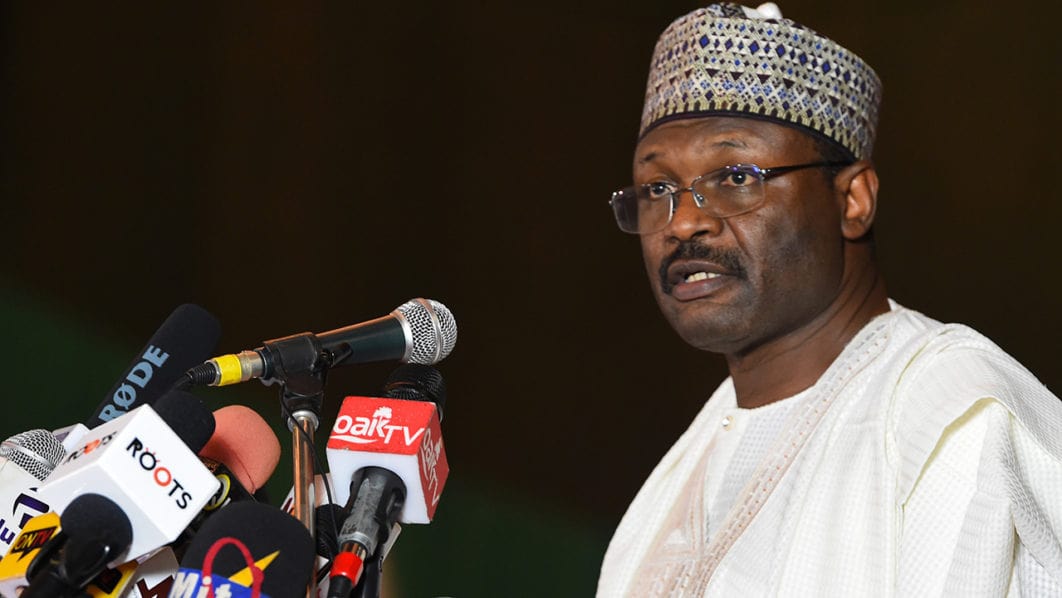The Chairman of the Independent National Electoral Commission (INEC), Prof. Mahmood Yakubu has emphasized the need to relocate the remaining Fifty-Nine (59) INEC Local Government offices currently housed within the Local Government Secretariats to independent locations
Addressing the House of Representatives Committee on Electoral Matters at the National Assembly Complex on Thursday, 21st November 2024, Prof. Mahmood Yakubu outlined the historical and operational challenges associated with the current office arrangements.
In his presentation, Prof. Yakubu explained that INEC’s presence within Local Government Secretariats originated during Nigeria’s transition from military to democratic governance. At the time, state military governors were responsible for providing office accommodation for the Commission. While this arrangement sufficed during the transition period, it has since proven problematic in certain situations; particularly during elections.
“These offices are not just administrative buildings, they are electoral facilities where we conduct voter registration and collate Local Government election results; sharing the same entrance with Local Government Secretariats has led to instances where opposition members were obstructed during collation processes. To safeguard transparency, we have been systematically relocating these offices or creating separate entrances where relocation is not immediately feasible.” he said.
Prof. Yakubu revealed that INEC has successfully relocated 715 out of its 774 Local Government offices, representing 92.4% of the total, while Fifty-Nine (59) offices representing 7.6%, are still situated within secretariats Notably, a large proportion of these offices are in the Southeast (47.5%), followed by the South-South (27.1%) and the Southwest (20.3%). In contrast, the Northeast has fully transitioned while the North Central and the Northwest have only one and two offices remaining, respectively.
ALSO READ: Sanwo-Olu suspends aide over controversial tweet on #EndSARS protest
“The relocation process faces two main challenges: availability of land and budgetary constraints,” the INEC Chairman explained. “In many northern states, land is more accessible, facilitating relocations. However, in areas like Lagos and the Southeast, land scarcity and high costs pose significant obstacles.”
He also highlighted the financial burden of maintaining INEC’s vast infrastructure, which includes over Eight Hundred and Sixty (860) buildings nationwide, encompassing local government offices, state offices, the Headquarters and other facilities. He noted that funding needed for maintenance and construction primarily comes from the electoral budget allocated every four (4) years. To address this challenge, Prof. Yakubu urged the committee to consider yearly budgetary provisions for the maintenance and relocation of these facilities.
The INEC Chairman sought the lawmakers’ support to accelerate the relocation process and ensure ongoing maintenance of electoral facilities continues uninterrupted. “Our suggestion is for this honourable committee to consider consistent budgetary provisions in the regular annual budget. This will ensure we can maintain and upgrade facilities without waiting for election years,” he stated.
Prof. Yakubu reiterated the Commission’s commitment to relocating the remaining offices and improving electoral infrastructure. “We are ahead of schedule, but we need sustained support to complete this task and ensure a transparent and accessible electoral process,”
Lawmakers expressed their support for INEC’s efforts, with members emphasizing the importance of upholding neutrality in the electoral process. In his words “INEC’s facilities must reflect its independence to build public confidence in elections,” according to a committee member. “This is essential to fostering good governance and democratic credibility.”
The briefing underscored the critical role of infrastructural independence in achieving credible elections and maintaining public trust in Nigeria’s democratic institutions.

 Health5 days ago
Health5 days ago
 Entertainment6 days ago
Entertainment6 days ago
 Crime5 days ago
Crime5 days ago
 Education7 days ago
Education7 days ago
 Health7 days ago
Health7 days ago
 Comments and Issues6 days ago
Comments and Issues6 days ago
 Football6 days ago
Football6 days ago
 Latest6 days ago
Latest6 days ago

